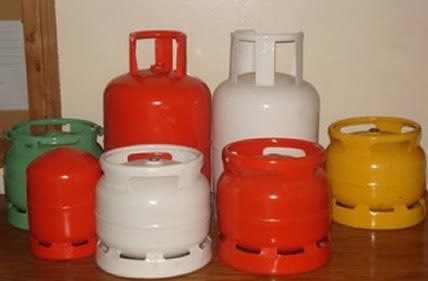In a significant move aimed at reducing the cost of cooking gas nationwide, the Nigerian Federal Government has opted to waive customs duty and value-added tax (VAT) on the importation of liquefied petroleum gas (LPG), commonly known as cooking gas, and its related equipment.
The decision, conveyed in a letter dated November 28, 2023, addressed to various officials, including the Special Adviser to the President on Energy, the Comptroller-General of the Nigeria Customs Service (NCS), and the Chairman of the Federal Inland Revenue Service (FIRS), was signed by Wale Edun, the Minister of Finance and Coordinating Minister of the Economy.
The letter cites President Bola Tinubu’s commitment to improving Nigeria’s investment climate, boosting LPG supply to meet local demand, reducing market prices, and promoting clean cooking practices.
The directive outlines the exemption of LPG imports from Import Duty and Value-Added Tax, effective immediately. The specified HS Codes 2711.12.00.00, 2711.13.00.00, and 2711.19.00.00 for LPG importation will now incur a 0% duty rate and 0% VAT rate.
Additionally, the Ministry of Finance has instructed the Nigerian Customs Service to comply with the presidential directive, dated July 29, 2022, and withdraw all debit notes issued to petroleum marketers who imported LPG using specific codes from August 26, 2019, to the present date. Several related items such as LPG cylinders, LPG cascades, gas leak detectors, steel pipes, steel valves and fittings, LPG dispensers, gas generators, and LPG trucks are also exempted from VAT and duty payments.
This decision follows concerns raised by Ekperikpe Ekpo, the Minister for Petroleum Resources (Gas), who conveyed President Bola Tinubu’s worries about the escalating prices of cooking gas, making it challenging for citizens.
Ekpo highlighted the abundance of gas in Nigeria but expressed dissatisfaction with companies prioritizing exports over ensuring sufficient domestic supply.
In response, a team was assembled to devise strategies to enhance the availability and affordability of cooking gas within a week.
The move aims to alleviate the burden on consumers, as the average cost for refilling a 12.5kg gas cylinder in Abuja stood at approximately N11,800 as of December 8.
Notably, 60% of the cooking gas used in Nigeria is imported, and its price is closely linked to the Naira’s exchange rate against the Dollar, which currently stands at N1200 for a single dollar on the black market as of December 9.



